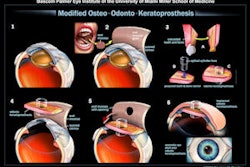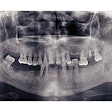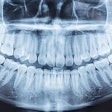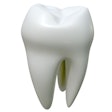NEW YORK (Reuters Health), Sep 24 - While the published literature on surgical management of sialorrhea is generally of low quality, nearly all of the studies show that most patients experience a significant subjective improvement following such treatment.
"The causes of drooling are extensive, ranging from neurological to mechanical, which makes it a difficult problem to treat effectively," writes a research team from Walter Reed Army Medical Center in Washington, DC.
"Possible surgical treatments include tympanic neurectomy, submandibular gland (SMG) excision, SMG duct rerouting, sublingual gland excision, SMG duct ligation, parotid duct rerouting, parotid duct ligation, and any combination of these procedures," according to Dr. Scott E. Brietzke and colleagues. "To date, there is no one procedure that is regarded as the most effective."
For their meta-analysis, Dr. Brietzke and colleagues ultimately studied 59 study subsets in 50 articles. Of the 59 study subsets, 55 were case series (Center for Evidence-Based Medicine level 4 evidence), 3 were retrospective cohort studies (CEBM level 2), and 1 was a prospective cohort study (CEBM level 1b). The median sample size was 18, and the median minimum duration of follow-up was 8.1 months.
In 58 of the 59 study subsets, subjective success rates were higher than 50%. The overall subjective success rate for all procedures estimated by random-effects modeling was 81.6% (p < 0.001).
"There was a trend that more aggressive procedures involving the removal of the submandibular gland were more successful than less invasive procedures where the ducts of the glands were ligated," Dr. Brietzke told Reuters Health.
The highest subjective success rate was with bilateral SMG excision with bilateral parotid duct rerouting (8 studies; 87.8%, p < 0.001). The lowest success rate was with 4-duct ligation (4 studies; 64.1%, p < 0.001).
"Surgical therapy for problematic drooling can be very successful and should be considered for patients with long-term drooling problems," Dr. Brietzke said. "Although less invasive procedures may still be considered initially, pre-operative counseling should include discussion that success rates may be lower with these types of procedures."
By Michelle Rizzo
Arch Otolaryngol Head Neck Surg 2009;135:924-931.
Last Updated: 2009-09-23 18:32:02 -0400 (Reuters Health)
Copyright © 2009 Reuters Limited. All rights reserved. Republication or redistribution of Reuters content, including by framing or similar means, is expressly prohibited without the prior written consent of Reuters. Reuters shall not be liable for any errors or delays in the content, or for any actions taken in reliance thereon. Reuters and the Reuters sphere logo are registered trademarks and trademarks of the Reuters group of companies around the world.


















